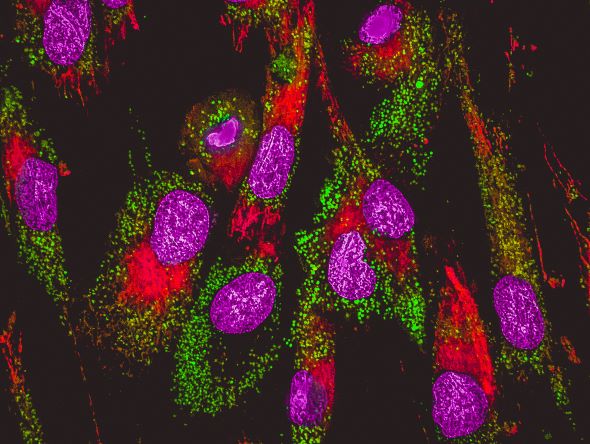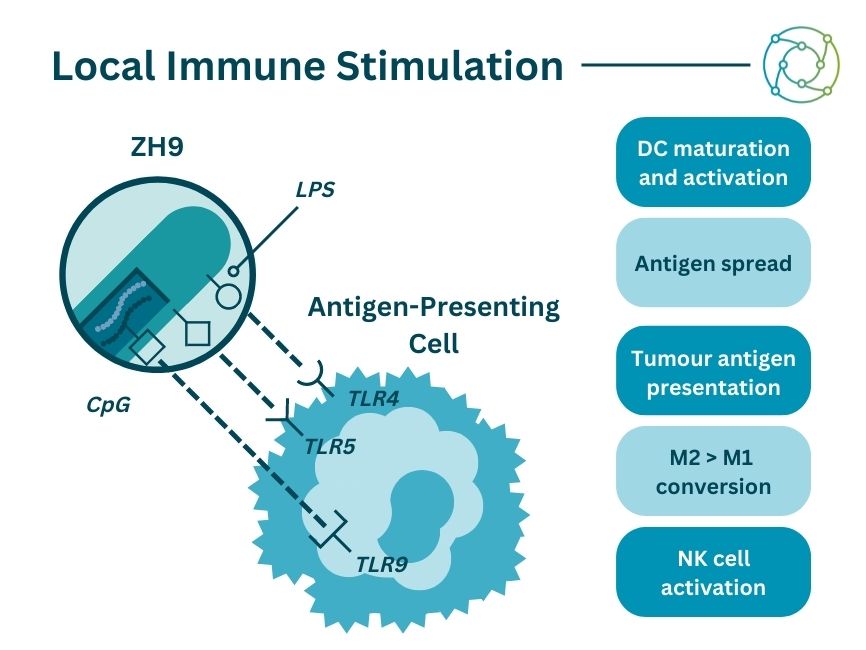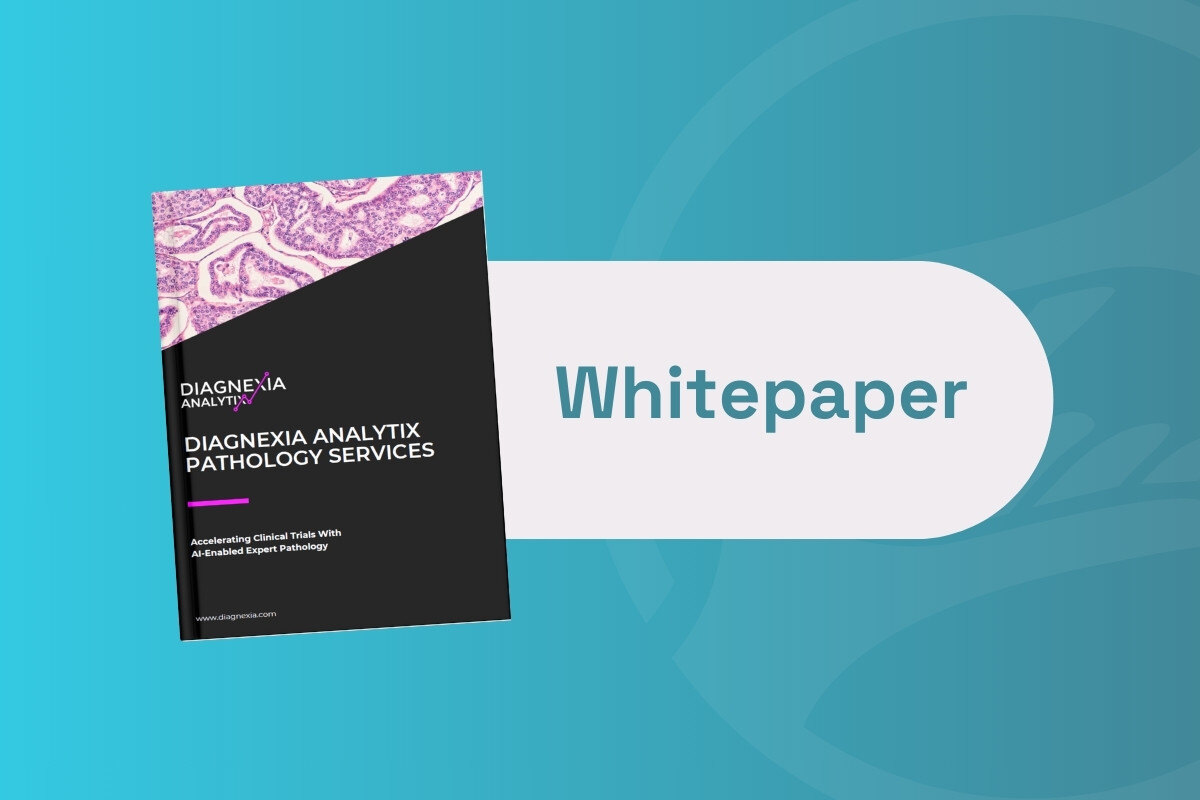Novel Microbial Immunotherapies for Bladder Cancer Treatment

Presented by: Alexandra Sevko, Director of Translational Research, Prokarium
Edited by: Ben Norris
Non-muscle-invasive bladder cancer (NMIBC) is one of the most challenging cancers to address on account of its situation within the body. If left untreated, cancer cells can grow through the muscle wall of the bladder, significantly complicating the issue. However, new treatment opportunities exist: Salmonella Typhi ZH9 is a novel microbial immunotherapy for bladder cancer.
ZH9 is a single well-characterised strain with preferential accumulation in tumour vs healthy tissue and it is introducing a systemic effect on myeloid cell system. “The innate immune system recognises bacteria well,” explained Alexandra Sevko, Director of Translational Research at Prokarium. “The good news about plasticity is you can still reverse myeloid cells to become acute inflammatory cells and potentially kill the cancer or spread the antigen.”
Microorganisms in Cancer Treatment
“The bacterial therapy of cancer has a very old history,” opened Sevko at Biomarker Analysis & Tumour Microenvironment Europe: In-Person 2022. In 1891, William Coley tried to use streptococcal organisms to treat patients with inoperable cancer. “He was quite successful,” Sevko said. “However, some patients did not survive treatment due to the internalisation of infection, which caused the method to die off.”
Fast forward to 2022, and the gasdermin proteins involved in pyroptosis — immunogenic, bacteria-induced cell death — won the Coley award for distinguished research in basic and tumour immunology. “The bacteria are coming back to life for cancer treatment,” said Sevko. “There are many ways in which microorganisms are used for cancer treatment, but today we are talking about the modulation of the tumour microenvironment.”

Sevko explained that bacteria are incredibly old pathogens which are known to the human immune system. “Our bodies are very familiar with them, and they’ve learned to fight them quite successfully.” As a result, the innate immune system recognises bacteria well, making novel microbial immunotherapies a viable approach in tumour immunology. Inherent myeloid plasticity offers treatment opportunities, particularly regarding immune cell plasticity in inflammation. “The good news about plasticity is that you still can reverse myeloid cells to become acute inflammatory cells and potentially kill tumours or spread antigens,” added Sevko.
Novel Microbial Immunotherapies for Non-Muscle-Invasive Bladder Cancer
In NMIBC, the recurrence and progression rates following treatment by transurethral resection of bladder tumour (TURBT) vary from 40 to 80%, depending on the tumour grade. The higher the tumour grade, the higher the rate of recurrence. The recurrence rates after the standard of care (SoC) BCG treatment vary and are reported as 40-80%. As such, one of the key challenges presented in treating NMIBC involves redesigning the treatment paradigm. Annually there are 550,000 new cases of NMIBC worldwide, and the current standard of care (SoC) regime with Bacillus Calmette-Guerin (BCG) requires six intravesical induction doses.
“By nature, the pathogen is immune-stimulating... the body's immune system will try to fight it off by broad TLR activation.”
Annually there are 550,000 new cases of NMIBC worldwide, and the current SoC regime with Bacillus Calmette-Guerin (BCG) requires multiple intravesical induction doses. However, Salmonella ZH9 only requires one intravesical dose, and demonstrates strong immune activation with long-lasting anti-tumour immunity. “The Salmonella typhi is a facultatively anaerobic organism, which means that it tends to accumulate in hypoxic areas, and tumours are the hypoxic areas,” said Sevko. As such, Salmonella demonstrates preferential survival in tumours with up to 10,000-fold higher accumulation in tumours versus healthy tissue.
“By nature, the pathogen is immune-stimulating,” continued Sevko. “The body’s immune system knows the pathogen and will try to fight it off by broad TLR (toll-like receptor) activation.” She added that the approach was different from microbiome therapy, which also has potential in cancer treatment but requires constant colonisation and recolonisation. “With ZH9 Salmonella, we deal with a single, invasive strain that doesn’t require frequent installations.” As such, a pathogenic life-attenuated bacteria represents a perfect next cancer immunotherapy platform.
Intravesical Salmonella Treatment Doubles Long-Term Survival
Sevko continued by proposing a potential mechanism of action hypothesis for ZH9 Salmonella treatment. “It can directly kill some tumour cells, but it also can induce maturation and activation of myeloid cells in the tumour microenvironment,” she explained. Sevko also suggested that macrophages in the tumour microenvironment can be converted to develop type I acute inflammatory phenotypes, along with the activation of other innate immune cells.
From here, Sevko demonstrated a therapeutic effect of the intravesical ZH9 therapy on the orthotopic MB49 bladder cancer model. Single ZH9 application doubled long-term survival of treated animals as compared to single-dose BCG treatment in this setting. Then she showed that local treatment of orthotopic bladder cancer model with Salmonella confers long-lasting systemic anti-tumour immunity upon local and systemic re-challenge of surviving animals. Interestingly, the therapeutic efficacy of the local Salmonella treatment was further increased with systemic ZH9 prime. As such, local treatment with Salmonella confers long-lasting systemic anti-tumour immunity via novel microbial immunotherapies.
Discussing the oncolytic applications of Salmonella ZH9, Sevko elucidated on the local immune effects caused by ZH9 Salmonella in the urine bladder. She provided data on an increased bladder layer’s immune infiltration with cross-presenting dendritic cells and monocytes following local treatment. This infiltration was intensified by a systemic Salmonella prime. Expanding on the ZH9 effect on myeloid cell compartment, Dr. Sevko demonstrated that ZH9-induced re-polarization of in vitro generated human type 2 macrophages into less suppressive counterparts, as was confirmed by their phenotypical and functional features. Moreover, M2-like differentiation of human CD14+ monocytes was prevented by ZH9 Salmonella pre-treatment.
Developing Trained Immunity Through Novel Microbial Immunotherapies
Sevko suggested that the systemic administration of Salmonella may cause the long-term functional reprogramming of innate immune cells. This leads to a response towards a second (heterologous) challenge after the return to a non-activated state, thus causing a broader antigen recognition by myeloid cells. This effect is referred as to trained immunity. She demonstrated that systemic administration of Salmonella delays tumour growth in MC38 subcutaneous tumour model and partially prevents metastasis in 4T1 tumour model. “We have demonstrated the trained immunity effect by preventing tumour growth and metastasis in animals which were preventively systemically challenged with Salmonella,” Sevko said.
- Read: Oxford Global's R&D Key 40 Stories 2022
- Discussion Group Report: Patient Engagement in Biomarker Development
- Aiding Clinical Qualification of Prognostics and Monitoring Biomarkers for Liver Cirrhosis
The dual effect of Salmonella application is aimed at overcoming immunosuppression in the TME. “The local inflammation caused by Salmonella Typhi is re-polarising and activating antigen-presenting cells,” summarised Sevko as she rounded off her presentation. “Furthermore, the systemic ZH9 treatment leads to systemic immune effect with modification of myeloid cells and antigen spread. We believe that we are causing long-lasting immune changes.”
Want to read more about the applications of biomarker analysis in immuno-oncology? Visit our Biomarkers portal to stay up to date on the latest developments in oncolytics and therapeutics. If you’d like to learn more about our upcoming Biomarkers UK: In-Person conference, visit our event website to download an agenda and register your interest.





.jpg)
